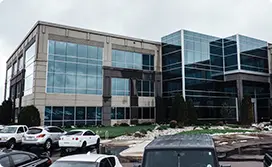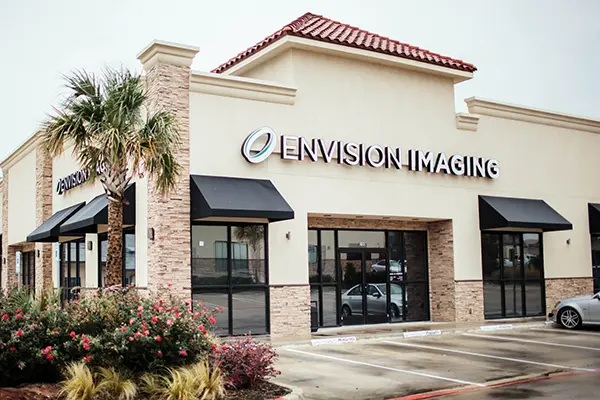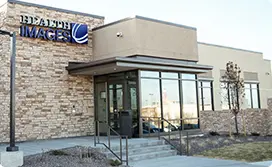As Miller’s physician stood in front of her later that day to deliver her results, he averted his eyes and struggled to find the right words; he had delivered both her children, a 7 and 3 year old, and had known her for years.
As the seconds ticked by, finally, Miller’s physician spoke aloud her fear — she had been diagnosed with breast cancer. Miller had tried bracing herself for the worst, but she couldn’t have prepared for the reality her physician had spoken aloud. The dreaded word — cancer — echoed in her mind, replaying again and again. The risk of a woman developing breast cancer was approximately 13%, and she was now a part of that statistic.
“The [breast cancer] diagnosis was hard to process at 38 years old because it was the last thing I expected,” Miller said. “You hear ‘cancer,’ and you think you’re going to die.”
Breast Cancer Diagnosis
Sixteen years before her diagnosis, Miller graduated from Aims Community College in Greeley, Colorado, with an Associate of Applied Science in Radiologic Technology. Shortly after graduation, she received her certification in interventional radiology and started working at a hospital in Longmont, Colorado.
Although Miller worked in radiology, she didn’t think about the need to have a screening mammogram; she was healthy, and her family didn’t have a history of breast cancer.
“A friend of mine had one of her friends diagnosed with breast cancer at 36 years old,” Miller said. “[Later] I was watching a movie, and I thought about my friend whose friend was just diagnosed. I decided I should probably do a breast exam on myself since I was 38 years old.”
Miller did a breast self-exam as a precaution, not expecting to find anything. During the self-exam, though, her fingers came across an abnormal lump. Knowing it was unusual, Miller scheduled an appointment with her physician, who referred her for a mammogram and an ultrasound.
“The radiologist I worked with tried to get me in [for an appointment], and I kept saying, ‘Oh, I have to get my kids to soccer. You know, there’s probably nothing wrong,’” Miller said.
Miller delayed her appointment not because she was afraid of the mammogram itself — she was afraid of the results. Many women, like Miller, recognize that a screening mammogram comes with a few brief seconds of pain. However, many of these women don’t delay their mammogram because of the pain; they delay their mammogram because they are afraid of being diagnosed with breast cancer.
Although the results of a mammogram can be unnerving, early detection of breast cancer in the localized stage has a five-year relative survival rate of 99%. A screening mammogram can detect breast cancer as early as stage zero, before a woman even has signs or symptoms of breast cancer. It’s a quick procedure, and it’s one that saves lives.
Despite her fear of receiving a positive diagnosis, Miller scheduled her appointment and went in for the necessary imaging.
On August 20, 2013, Miller was diagnosed with stage one breast cancer.
“When I first found out [I was diagnosed], I thought I was going to die,” Miller said. “Anytime I told anyone, they had the same reaction, like it was a death sentence. Seeing people’s reactions was alarming because I was only 38 years old.”
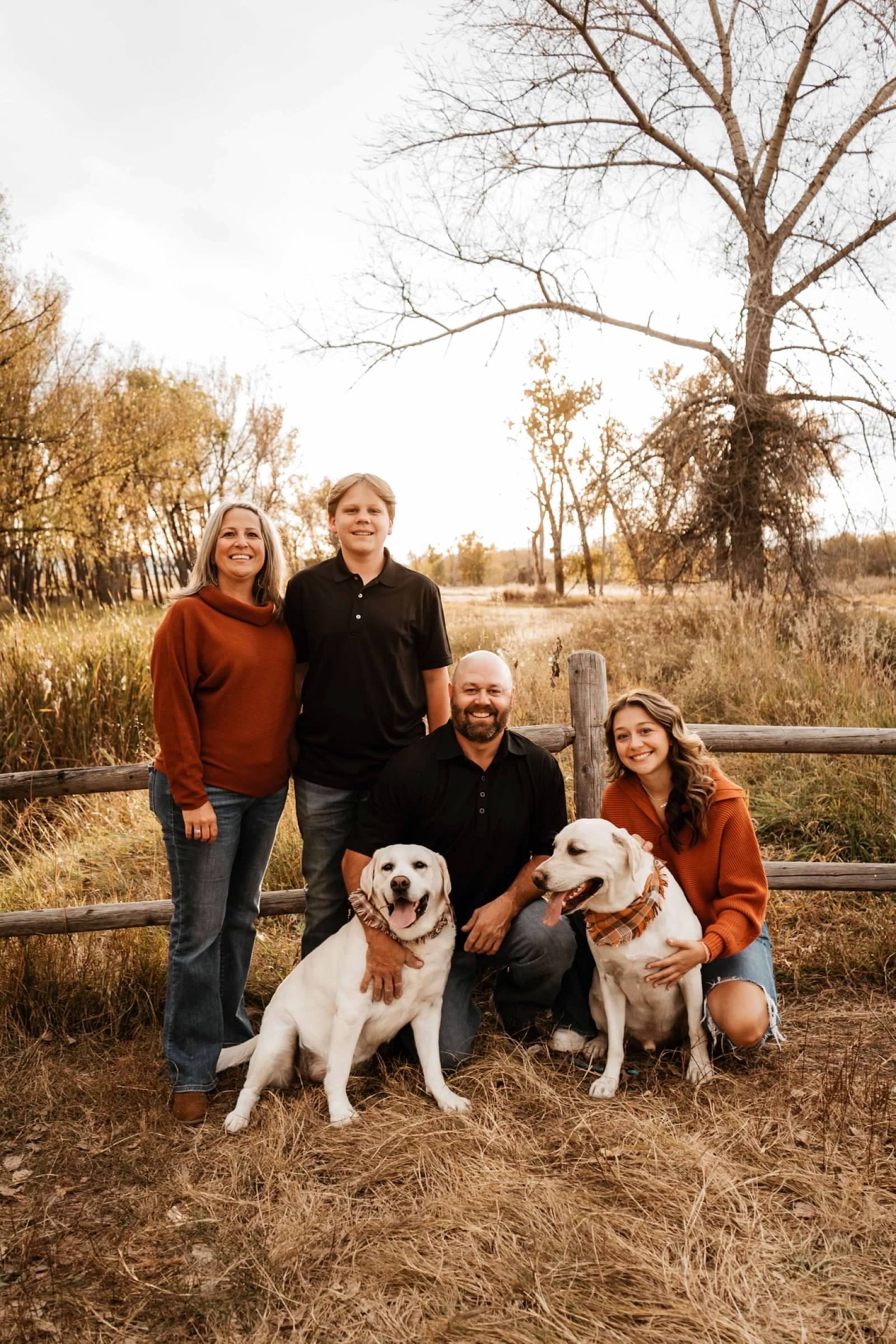
For Miller, one of the hardest parts about her diagnosis was knowing that she would no longer be the caretaker for her husband and two young children. She told herself to stay strong and keep a brave face for them, but it was easier said than done.
“Having breast cancer is a rollercoaster because one minute, you’re like, ‘No, this is fine. I found it early, I’m going to beat this,’” Miller said. “And then the next thing you’re waking up in the middle of the night crying because you don’t think you’re going to see your kids graduate high school.”
On the days she felt defeated, weak, and powerless, Miller reminded herself of who she was fighting for — her husband and kids. She wanted to watch her kids graduate high school. She wanted to see her kids get married. She wanted to grow old with her husband. She wanted to not only survive; she wanted to live her life.
“‘You’re going to make it through,’ [I would tell myself]. It’s just one day at a time,” Miller said. This simple phrase quickly became Miller’s motto. It was one step at a time. One appointment at a time. One surgery at a time. One day at a time. These five words would help her endure through the hardest few months of her life. One day at a time was her motto — her lifeline.
Breast Cancer Treatment and Recovery
Following her initial diagnosis, Miller consulted with a breast surgeon and oncologist to determine her treatment and next steps.
“Having a plan [moving forward] helped my brain stay focused on not dying,” Miller said. “I knew I needed to get things taken care of so I could have the rest of my life.”
Miller decided her best form of treatment was to have a bilateral mastectomy with reconstruction. This was a major surgery, but it was one that almost guaranteed Miller would not get local recurrence in her breasts.
And it would almost guarantee that she would watch her kids grow up.
She knew it was what she needed to do for her family. For herself. For her life.
“I was set on having a mastectomy. My husband and I were both on the same page,” Miller said. “[Having a mastectomy] gave me peace of mind.”
Two months after her diagnosis, Miller underwent the procedure and spent a few days recovering in the hospital. After the surgery, though, Miller felt disfigured. Scarred. Incomplete.
One of the very things that made her feel like a woman had been stripped from her.
It didn’t seem fair. None of it did — the cancer, the impact it had on her family, or the surgery. She hadn’t chosen this for herself. No one would have. And yet, this was her new reality. And her new body.
“It was hard taking the bandages off for the first time,” Miller said. “My husband and I cried.”
Miller was in pain, emotionally and physically, and didn’t fully feel herself. But she still had a reason to celebrate.
She was cancer-free.
“When I was in the hospital, they took all my tissue. My lymph node came back negative, so then I knew there was no cancer in my body,” Miller said. “That was on October 10, 2013, and that’s my celebration [day] every year.”
After months of appointments, fear, and sleepless nights, Miller was finally healthy. She could have joy in knowing that she was going to live.
“All it takes is one diagnosis and your life changes,” Miller said. “It was a hard road. I didn’t pick breast cancer, but I know I am definitely taking all the positives out of it that I can.”
In the months following, Miller made a full recovery from both the surgery and reconstruction. Her family vacationed together and spent time doing the things they loved, and Miller eventually returned to work — but not in her previous role. Motivated by her experience, Miller switched from interventional radiology to mammography.
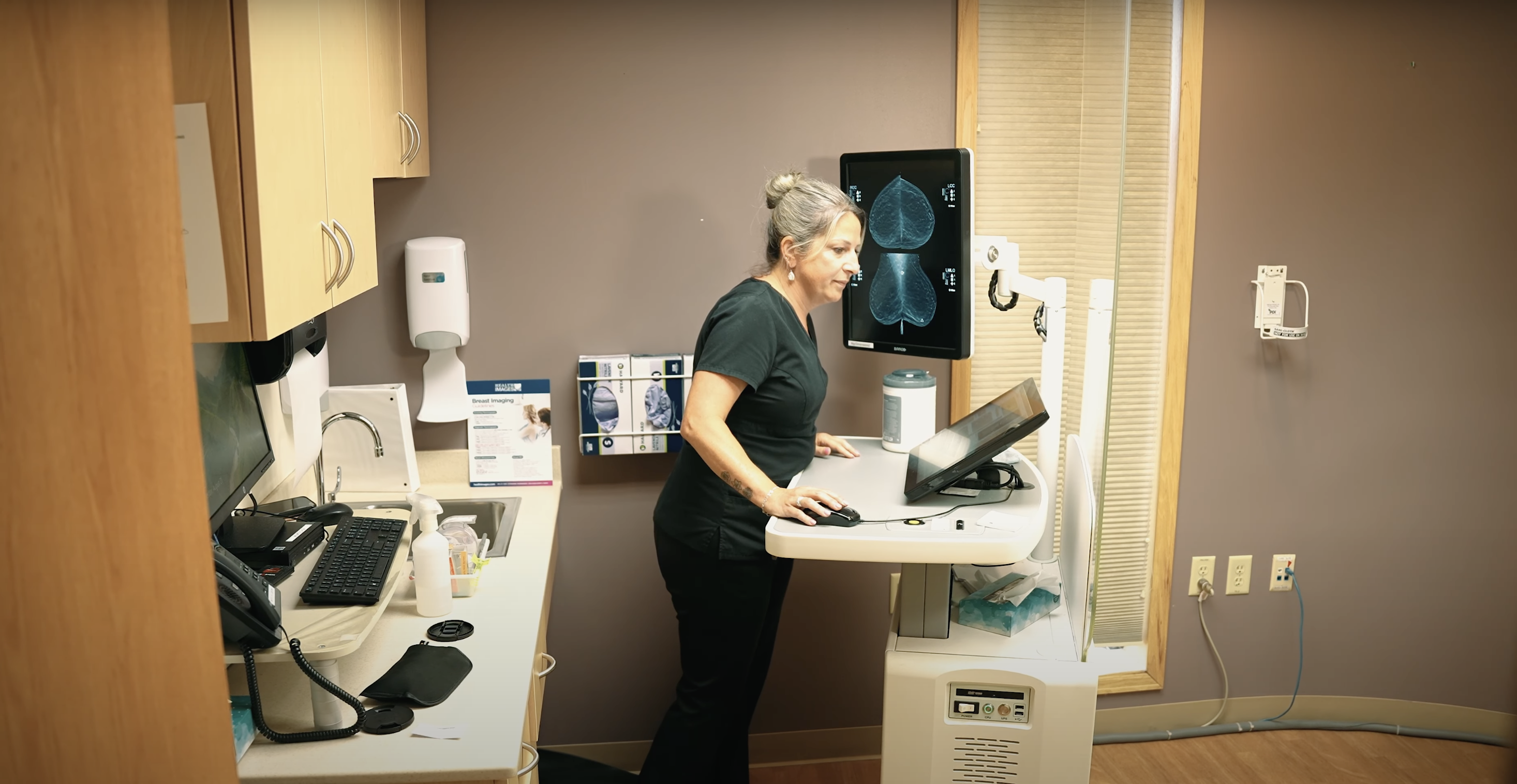
Eleven years after her diagnosis, Miller is now the lead mammography tech at Women’s Imaging Longmont in Longmont, Colorado. Here, Miller encourages and walks alongside women who may have breast cancer.
“I can help women who are scared, who are just diagnosed, or who are afraid they have breast cancer,” Miller said. “I can put them at ease. I was diagnosed, and I’m still here today. I’m smiling, I’m raising my children, and I’m living my life.”
Since Miller’s initial diagnosis eleven years ago, technology, diagnostic imaging, and treatment plans for breast cancer have only improved, instilling hope for women everywhere.
“Breast cancer is not a death sentence like it used to be 20 years ago,” Miller said. “Staying ahead of the game is key.”
Schedule Your Screening Mammogram
One in eight women in the United States alone will develop breast cancer in her lifetime.
But these odds can be defied by encouraging women to schedule their annual screening mammogram. Regardless of whether they have signs or symptoms of breast cancer, every woman aged 40 years or older should schedule an annual mammogram. When caught early, breast cancer can be more easily overcome and treated.
Being diagnosed with breast cancer is not a death sentence. You can survive. You can live your life.
Don’t wait to prioritize your health. Schedule your mammogram today.


